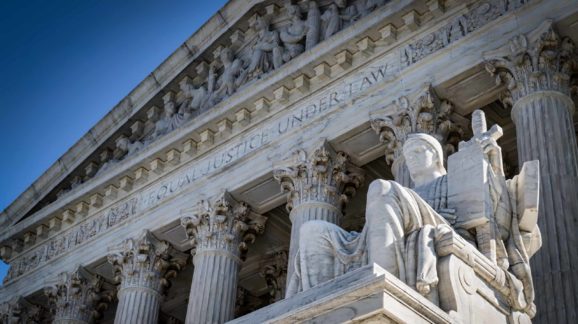Civil forfeiture has become a significant government intrusion in recent years. While it remains a viable instrument for federal agents enforcing customs laws and fighting international crime, misguided policies and misaligned incentives foster abuses and raise grave constitutional concerns.
Each year, federal and state forfeiture programs allow law enforcement to seize more than $3 billion in cash and property from thousands of people – often without ever charging them with a crime. There are also serious questions as to whether civil courts using lower burdens of proof are the appropriate means to enforce government anti-crime policies.
Civil forfeiture further jeopardizes the relationship between police and their communities when vulnerable residents who cannot afford to challenge small-value seizures are targeted. There are also questionable benefits when financially-stressed departments prioritize revenue-generating forfeitures over arrests, drug interdiction, and crime-fighting.
CEI is addressing these issues through its new Forfeiture Reform Initiative: engaging federal and state policymakers to implement much-needed reforms and educating the public about their constitutional rights to stop improper seizures in the first place.
No person should have to fear for their property while engaged in lawful activities or lose it without ever being convicted of a crime.
Featured Posts

Blog
CEI files amicus brief in SCOTUS case to protect homeowners from tax equity theft
On December 8, 2025, CEI filed an amicus brief in the case Michael Pung v. Isabella County, Michigan at the United States Supreme Court. This case…

Blog
Some thoughts on Constitution Day
As I drove into work today, it occurred to me: we so often take for granted the extraordinary power that the automobile gives us. Once…
Fox News
Federal judge rules that 156-year-old ban on at-home distilling is unconstitutional
Fox News cites CEI’s Devin Watkins and Dan Greenberg on Hobby Distillers Association v. Alcohol and Tobacco Tax and Trade Bureau et al: Devin Watkins,…
Search Posts
Blog
Supreme Court will not Hear Columbia University Eminent Domain Case
It was announced today that the U.S. Supreme Court will not take up a challenge to the Empire State Development Corporation’s property takings in…
Citation
Wal-Mart Case Bigger Than Company
Blog
New Fast Food Restaurants Banned in South Los Angeles
New fast-food restaurants are now banned in South Los Angeles. Say goodbye to many entry-level jobs in that poor urban area. The cockamamie idea behind this ban is…
Blog
Seattle Land-Use Regulation Liberalization Redux
Stephen Smith of Market Urbanism responds to my response to his question, asking if I thought Seattle’s proposed land-use liberalization bill was a…
Blog
Seattle Land Use Liberalization Bill Fails to Address Key Problems
Stephen Smith of Market Urbanism asked me what I thought of proposed legislation in Seattle that would remove some restrictions on land use…
Blog
Real Estate Development and Generation Y
Over the Thanksgiving holiday, I came across this article in Urban Land magazine, “Housing Gen Y: The Next Challenge for Cities,” by John McIlwain. In…
